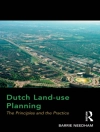Leisure has always been associated with freedom, choice and flexibility. The week-end and vacations were celebrated as ′time off′. In his compelling new book, Chris Rojek turns this shibboleth on its head to demonstrate how leisure has become a form of labour.
Modern men and women are required to be competent, relevant and credible, not only in the work place but with their mates, children, parents and communities. The requisite empathy for others, socially acceptable values and correct forms of self-presentation demand work. Much of this work is concentrated in non-work activity, compromising traditional connections between leisure and freedom. Ranging widely from an analysis of the inflated aspirations of the leisure society thesis to the culture of deception that permeates leisure choice, Rojek shows how leisure is inextricably linked to emotional labour and intelligence. It is now a school for life.
In challenging the orthodox understandings of freedom and free time, The Labour of Leisure sets out an indispensable new approach to the meaning of leisure.
Chris Rojek is Professor of Sociology and Culture at Brunel University. In 2003 he was awarded the Allen V. Sapora Award for outstanding achievement in the field of leisure studies.
Cuprins
Positioning Leisure
The Leisure Society Thesis and Its Consequences
Roadblocks to Free Time
Visionaries and Pragmatists
What Is Wrong with Leisure Studies?
Multiple Equilibria: A Balanced Approach
The State
Corporations
It′s Still Leisure, Stupid
Despre autor
Chris Rojek is Professor of Sociology and Culture at Brunel University, West London. He is a prolific and influential author in the field of Celebrity, Leisure Studies and Popular Culture. In 2003 he was awarded the Allen V. Sapora prize for outstanding achievement in the field of Leisure and Tourism Studies. Besides lecturing in the UK he has given lectures on leisure in Australia, Canada, the USA and the Netherlands. In 2009 he was Hood Fellow at the University of Auckland, New Zealand. He also writes on celebrity culture, neat capitalism and myths and realities of national identity. His current research is on popular music and popular culture and the meaning of the celetoid in Reality TV.












